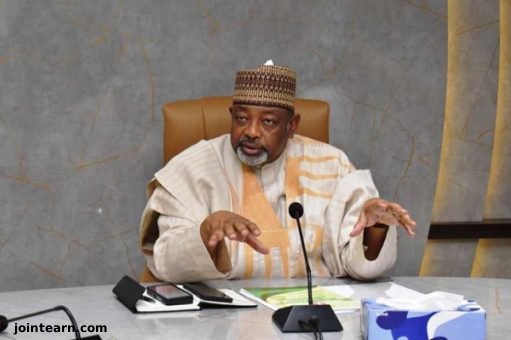
Nigeria must transition from traditional to modern farming systems to unlock its full agricultural potential and ensure food stability, Minister of Agriculture and Food Security, Abubakar Kyari, has said.
Kyari spoke at the 47th meeting of the National Council on Agriculture and Food Security, themed “Food Sovereignty and Food Security: An Era of Renewed Hope.” He emphasized that the government’s agricultural transformation agenda aligns with Nigeria Vision 2050, the National Development Plan (2021–2025), and other key policies aimed at economic diversification and shared prosperity.
Highlighting progress, Kyari cited the decline in food prices for several commodities, attributing it to targeted government interventions. He noted that the National Agricultural Growth Scheme-Agro-Pocket (NAGS-AP) has expanded wheat cultivation from 15 states in 2023/2024 to broader coverage in 2024/2025, with rainfed wheat cultivation introduced in Plateau, Taraba, and Cross River.
“The Renewed Hope National Agricultural Mechanisation Programme, in partnership with Heifer Nigeria, will provide farmers, youth, and women with access to tractors, mechanisation hubs, and technical training,” Kyari said. “Mechanisation will modernize production, increase yields, and create sustainable rural jobs.”
He added that the National Strategic Grain Reserve Silos in multiple states have been enhanced to improve national food distribution and stabilize prices. The National Agricultural Development Fund has also been fully operationalized to expand access to finance for value chains and agribusiness ventures.
Minister of State for Agriculture, Sen. Dr. Aliyu Abdullahi, highlighted the importance of climate-smart agriculture and ongoing initiatives, including the Dry Season Initiative, Every Home a Garden project, Nigerian Farmers’ Soil Health Scheme, and cooperative reform programmes. He stressed that these efforts aim to reduce import dependence, boost productivity, and position Nigeria as a leading food supplier in West Africa.
Permanent Secretary Dr. Marcus O. Ogunbiyi described the Council as the nation’s key forum for agricultural policy coordination. “Food sovereignty is not just about availability; it is about control, sustainability, and empowerment,” he said, urging delegates to translate discussions into practical actions that ensure every Nigerian household is nourished.


Leave a Reply